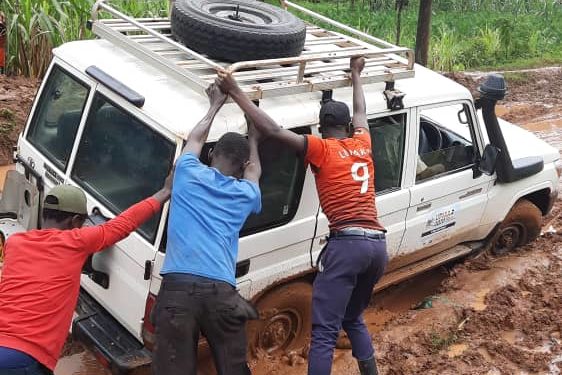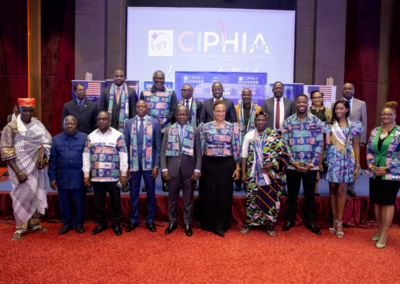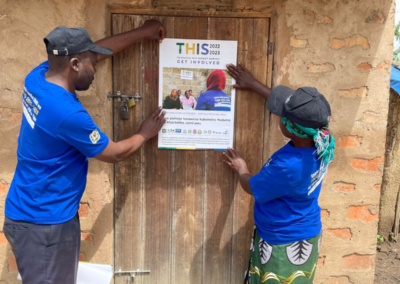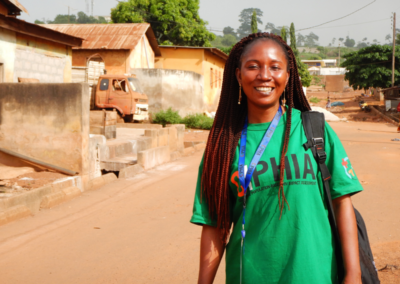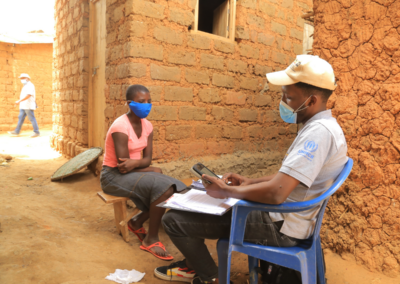These measures also affected the Uganda Population-based HIV Impact Assessment (UPHIA) 2020, the nation’s second household-based survey to provide national and regional estimates of HIV incidence, prevalence, and viral load suppression among other indicators. UPHIA 2020 began data collection in February 2020 but abruptly halted due to the onset of the pandemic.
After a seven-month hiatus, the UPHIA 2020 surveys resumed data collection in October 2020. In the midst of the rainy season, the teams overcame several hurdles to reach selected enumeration areas (EA), or where households are being surveyed, and ensure data collection persisted.
One team travelled to Eastern Uganda to reach an EA on the top of Mount Elgon, an extinct shield volcano bordering Uganda and Kenya, an area notorious for its heavy rains and landslides. Located in a remote area with limited access to health services, the community members were eager to receive the UPHIA 2020 team, participate in the survey, and receive HIV testing and counseling.
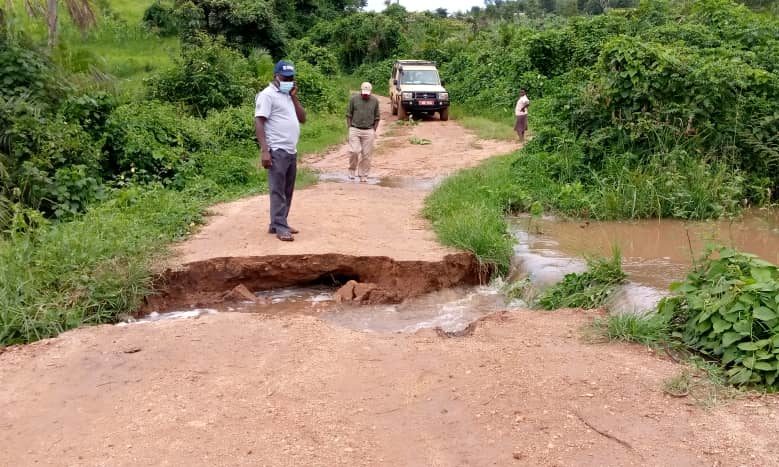
A UPHIA 2020 team leader assessing a section of the road that was washed out by rain, prohibiting them to cross by car
After a day of data collection, when the team was preparing to leave, the continuous rain had caused landslides that left the team vehicles stuck in the mud. Despite the best efforts of the team and the neighboring communities, the team was unable to move and had to come up with a plan B.
“The team decided to split up to make the best use of their time. One group stayed behind to remove the vehicles from the mud and the other group trekked to meet another team that could help transport the collected samples to the nearest satellite laboratory,” said David Okimait, technical advisor at ICAP in Uganda. “They traveled a total of six hours on foot to ensure the samples would be processed in time, demonstrating the unwavering commitment of the team members to meet the goals of the UPHIA 2020 survey.”
Although the team demonstrated great perseverance, there were many risks involved in collecting data in such treacherous conditions. After the team was able to remove their vehicle from the mud, data collection in that area was halted until it was safe to resume.
“Some of our team members originate from the Mount Elgon region and felt a great sense of responsibility about their communities’ participation in UPHIA 2020,” said Okimait.
In another instance, several UPHIA 2020 teams had travelled to the islands around Lake Victoria, requiring 2-6 hours of travel on water to reach their destination. ICAP in Uganda provided teams with resources, such as tents, so they were well-equipped to conduct research in such remote areas.
“The excitement of the teams to go and work in such areas translated to the survey being conducted in a very organized way,” said Okimait. “Because we had good modes of transport which emphasized team safety, the teams were able to conduct survey processes including HIV testing and counseling and keeping the samples on ice until it was time to send them off to the satellite labs.”
In UPHIA 2020, each EA has its own comparative advantages and challenges. Teams working in urban areas, for example, do not need to travel long distances but struggle with finding participants at home to survey. They come up with alternative strategies to reach them such as rescheduling appointments to evenings and weekends. Another team was interrupted by inter-tribal cattle raids, but safely returned the next day to continue data collection with support from community leadership.
The most critical undertaking remains in following COVID-19 protocols and standard operating procedures put in place by ICAP, the U.S. Centers for Disease Control and Prevention (CDC), and Uganda’s Ministry of Health.
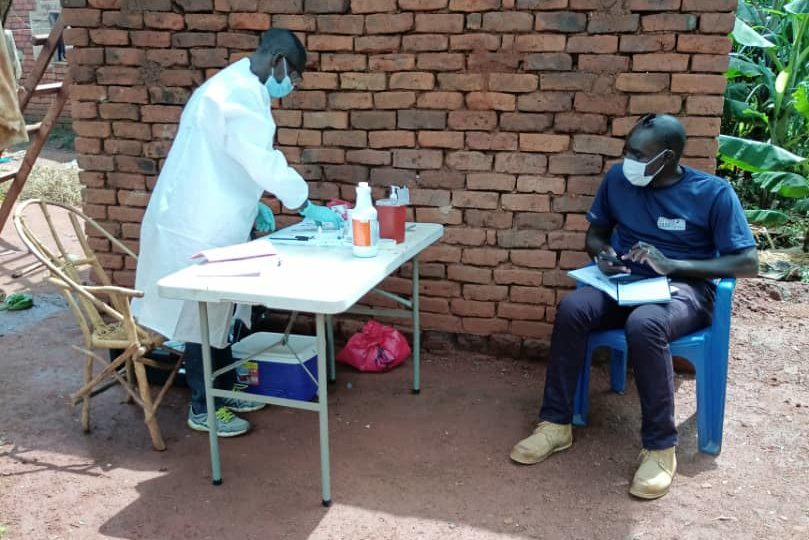
UPHIA 2020 team members preparing for sample collection in Eastern Uganda while wearing personal protective equipment
These procedures allow teams to go into communities with COVID-19 protections such as wearing face masks at all times and full personal protective equipment during collection of blood samples; observing a two-meter distance while interviewing participants; and hiring additional vehicles to make sure there are no more than four team members per vehicle. Temperature guns are used for each survey participant and the teams notify the COVID-19 district taskforce if someone is ill.
The team members are routinely tested for COVID-19 and screened every morning for related symptoms before data collection. To keep this operation running smoothly, ICAP in Uganda has appointed a COVID-19 coordinator to ensure all protocols are being followed.
“As the UPHIA 2020 team, we are taking great precautions to protect the communities we are working in,” said Sam Biraro, MBChB, PhD, ICAP in Uganda’s country representative. “It is a big feat to re-start the survey and, despite various obstacles teams have faced, we are making great strides. As our data collection phase will be complete in the coming weeks, we look forward to sharing the survey results with the world and reflecting on the progress Uganda has made in controlling its HIV epidemic.






